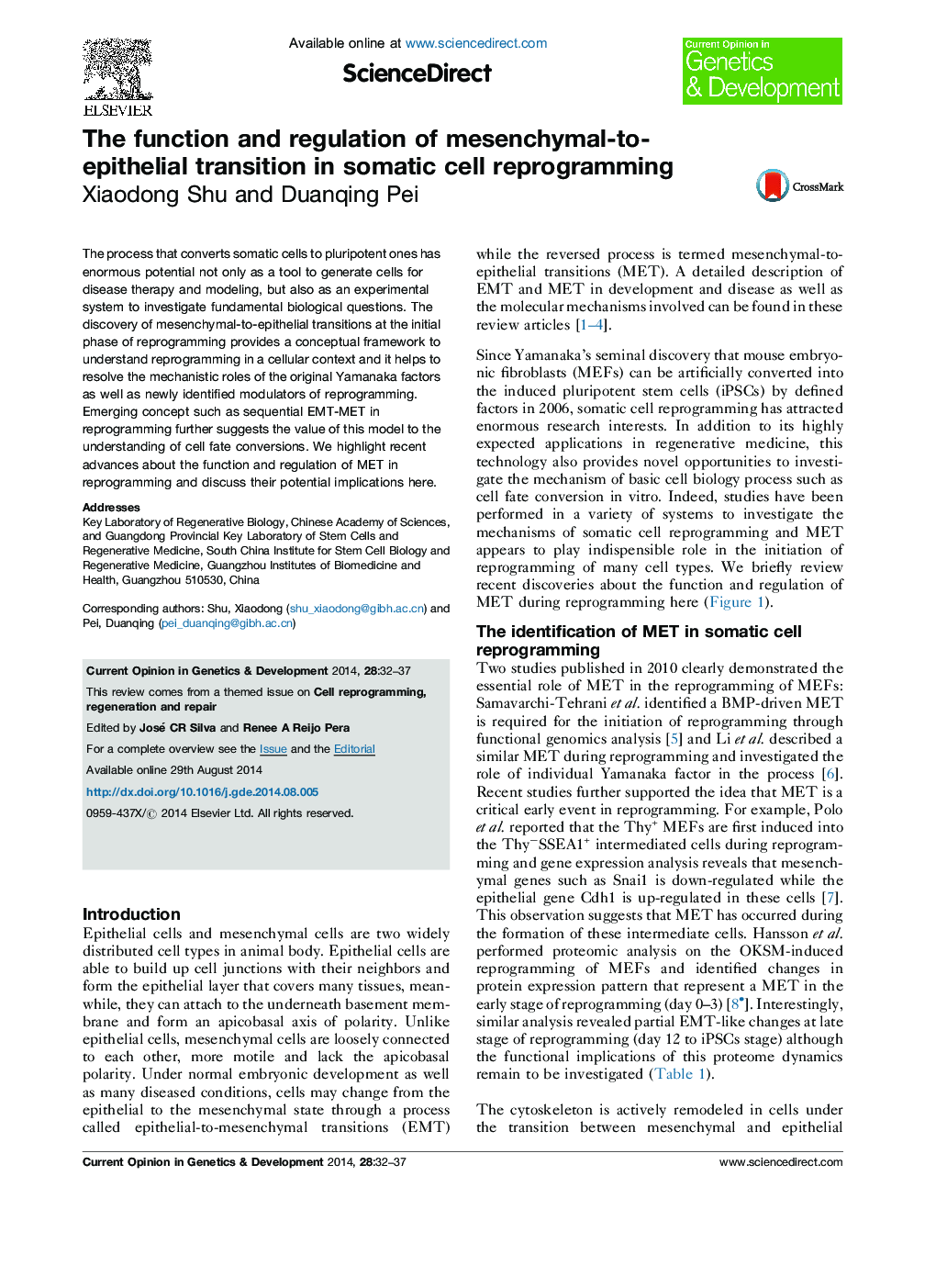| Article ID | Journal | Published Year | Pages | File Type |
|---|---|---|---|---|
| 5893299 | Current Opinion in Genetics & Development | 2014 | 6 Pages |
The process that converts somatic cells to pluripotent ones has enormous potential not only as a tool to generate cells for disease therapy and modeling, but also as an experimental system to investigate fundamental biological questions. The discovery of mesenchymal-to-epithelial transitions at the initial phase of reprogramming provides a conceptual framework to understand reprogramming in a cellular context and it helps to resolve the mechanistic roles of the original Yamanaka factors as well as newly identified modulators of reprogramming. Emerging concept such as sequential EMT-MET in reprogramming further suggests the value of this model to the understanding of cell fate conversions. We highlight recent advances about the function and regulation of MET in reprogramming and discuss their potential implications here.
